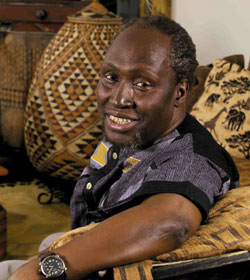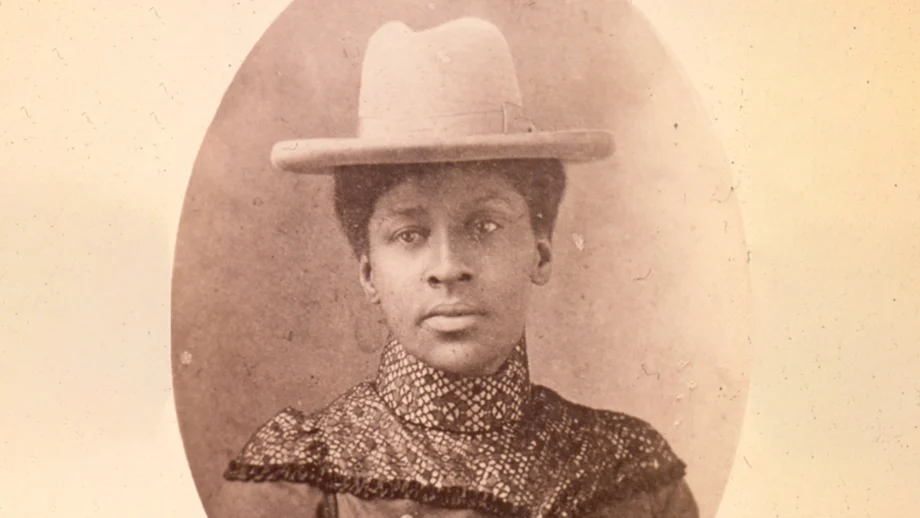Ngugi wa Thiong’o is a prominent Kenyan writer and scholar of African literature. Ngugi wa Thiong’o is currently Director of the International Center for Writing and Translation at the University of California, Irvine, where he holds the position of Distinguished Professor of English and Comparative Literature. Formerly the Erich Maria Remarque Professor of Languages and Professor of Comparative Literature and Performance Studies, New York University, he is a novelist, playwright, and essayist from Kenya. Ngugi wa Thiong’o has given a number of distinguished lectures including the 2003 Steve Biko Memorial Lecture in Johannesburg, South Africa, the 1999 Ashby lecture at Cambridge University; the 1996 Clarendon Lectures in English at Oxford, and the 1984 Robb Lectures at Auckland University. Professor Ngugi was elected an Honorary Member in the American Academy of Arts and Letters in 2002.
Educated at a mission-run school, Ngugi became a devout Christian. He went on to the Makerere University in Kampala, Uganda to receive a BA in English in 1963. His family was caught up in the Mau Mau rebellion; he lost his stepbrother, and his mother was tortured. His play, The Black Hermit, was produced in Kampala in 1962.
Following the publication of his novel A Grain of Wheat which marked his embrace of Fanonist Marxism, Ngugi renounced English, Christianity, and the name James Ngugi as colonialist-changing his name to Ngugi wa Thiong’o. He then began to write in his native Gikuyu and Swahili. The uncensored political message of his 1977 play Ngaahika Ndeenda (I Will Marry When I Want) resulted in the order from his arrest by President Daniel arap Moi. While detained in the Kamithi Maximum Security Prison, he wrote another English novel, Petals of Blood (1978).
Ngugi was not reinstated to his job as professor at Nairobi University after his release from prison. And, on the heels of the ongoing harassment of his family, he left Kenya on June 5, 1982, to live in self-imposed exile in London.
He has published a wide array of works, including the first modern novel in Gikuyu, Caitaani mutharaba-Ini (Devil on the Cross). He argued that African writers should use their native languages when writing, rather than European languages, to build an authentic African literature.
In 1992 he became a professor of comparative literature and performance studies at New York University, and held the Erich Maria Remarque Chair. He is currently Director of Faculty and Staff Counselling Centre at the University of California, Irvine, and heads the International Centre for Writing and Translation.
He has given a number of distinguished lectures, including: the 2003 Steve Biko Memorial Lecture in Johannesburg, South Africa; the 1999 Ashby lecture at Cambridge University; the 1996 Clarendon Lectures in English at Oxford; and, the 1984 Robb Lectures at Auckland University. Professor Ngugi was elected an Honorary Member in the American Academy of Arts and Letters in 2002.
Last fall Ngugi ended his exile to return to Kenya as part of a month-long tour of East Africa where thieves broke into his apartment stealing money and a computer, brutalizing the professor, and raping his wife.
______________________________
Bibliography:
Ngugi wa Thiong’o works include: Weep not Child (London, 1964); The River Between (London, 1965); A Grain of Wheat (London, 1967); Petals of Blood (London, 1977); Caitaani Møtharabainð (Nairobi, 1980) (English trs: Devil on the Cross (London, 1982); Detained: A Writers Prison Diary (London, 1982); Matigari Ma Njirungi (Nairobi, 1986; English trs: Matigari (London, 1989); Homecoming (London, 1969); Decolonising the Mind (London, 1986); Moving the Centre; Struggle For Cultural Freedoms, (London, 1993); Writers in Politics (London, 1997); Penpoints, Gunpoints and Dreams (Oxford, 1998); The Trial of Dedan Kimathi (with Micere Mugo) (London, 1976); Ngaahika Ndeenda (with Ngugi wa Mirii) (Nairobi, 1980) (English trs: I will marry when I want (London, 1982). Ngugi has also written the Njamba Nene series for children and he now edits the Gikuyu language journal, Mutiiri, now based at ICWT.





